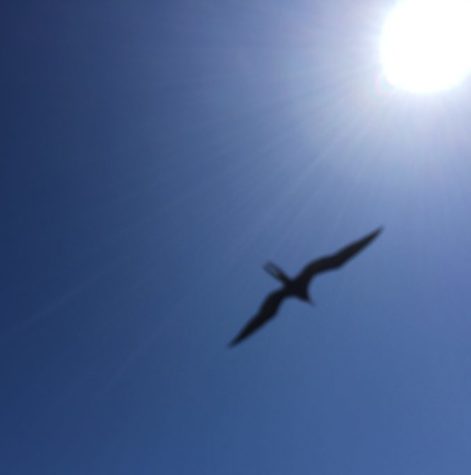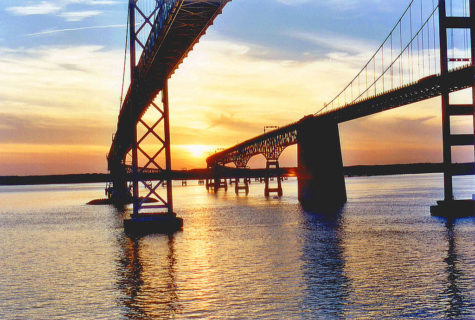 About seven years ago, a good friend of mine experienced an unthinkable tragedy. Her 38-year-old cousin—to whom she was extremely close—and the woman’s two young daughters were walking hand in hand to school when a driver, having passed out due to an illness, swerved into them. They were dragged to their deaths.
About seven years ago, a good friend of mine experienced an unthinkable tragedy. Her 38-year-old cousin—to whom she was extremely close—and the woman’s two young daughters were walking hand in hand to school when a driver, having passed out due to an illness, swerved into them. They were dragged to their deaths.
Ever since, my friend has been unable to drive over bridges.
Her sudden inability is a symptom of post-traumatic stress disorder, PTSD, which can manifest as an irrational fear of something directly related (or sometimes not) to the incident that triggered it. In her case, the accident turned manageable discomfort with highway driving into extreme nervousness on busy roads and full-on panic attacks on bridges. Why bridges in particular set her off isn’t clear, but it’s atop these suspended roads, she says, that she worries she’ll pass out like the driver who killed her family. (She’s been blogging about her own road, to healing, here.)
PTSD has many faces and, according to media reports, our current political goings-on have sliced open the scars of certain sufferers. As we’re about to hand the White House to Donald Trump, a man who has without apology been publicly sexist and racist—among other un-presidential traits—we’ve had to face the truth that we the people are as polarized and full of hate as ever. For those previously targeted and traumatized by the isms Trump and his supporters represent, experts say watching this man rise to power has been enough to trigger PTSD symptoms the way a stray gunshot might set off a war veteran—or a bridge can stop my normally fearless friend from getting from here to there.
Some say we’re all experiencing PTSD, that Trump is another shock to a people already beaten down by 9-11, by the global financial meltdown, by a sense of citizen vulnerability that is somewhat irrational in a world that’s actually gotten safer. (Whether that will remain true during Trump’s reign is debatable.)
Collective PTSD or no, a lot of Americans are simply grieving, feeling a sense of loss as strong as they might from the death of someone they cared about. Especially for those who had been living in a bubble of comrades on social media, Trump’s win was a shocking blow. In the aftermath of that blow, one friend described the Trump Reality as a blade that keeps popping open and jabbing her should she give in to a blissful moment of forgetting. The group weeping continues, to sounds of jeering from the other side. Who would have thought a political upset in this day and age could be as nationally hurtful, as emotionally crushing as this?
Of course, we can’t just sit here crying and complaining. There are things to do and solace to be found. For my friend, whose loss, I want to say, seems to me truly incomparable to anything in politics, nature has been a guide toward healing. Along with familial support, she is coping with sadness and fear through wildlife. An avid birder, she decided that a year punctuated with bird-watching trips around the country (a Big Year, in birding circles) might be her solace, her cure. Simply being in nature has proven good for mental health, while in her case getting to the prize of a particular rare-bird sighting requires hitting the road and, often, crossing waterways. She’s facing her fear by turning it into a way forward, toward something she loves—something many of us love, or would benefit from getting to know better.
And it’s working. She recently conquered the Chesapeake Bay Bridge and logged her 498th bird.
Perhaps the rest of us can begin to cross our own bridges, also toward nature—a thing that’s bigger than politics, more enduring than hatred, and cleansing of wounds. Yes, most of us will keep watching the political circus, waving our arms and yelling our frustrations to an emcee who ignores us. We’ll keep trying, and some, hopefully, will make a difference. But it wouldn’t hurt to replace some of our hand wringing with time in fresh air: a chilly morning run (over a river, perhaps?), a long sit under a tree at the park, a sunset stroll.
And for those for whom the daily news cycle is too much to bear—when seeing and hearing Trump at the podium is reanimating a tragedy or unspooling a memory we’d hoped was wound tightly and stored away—perhaps it’s time to flip off the news, shut down social media, find a place outdoors where birds come and go, and turn our faces to the sky.
Photo Credits:
Soft-focus frigate in the Galapagos: By the author
Bay Bridge over the Chesapeake: By RCraig09 (Own work) [CC BY-SA 4.0 (http://creativecommons.org/licenses/by-sa/4.0)], via Wikimedia Commons
Jenny, anybody who can drive over the Chesapeake Bay Bridge is CURED. I just about pass out every time I try.
It’s apparently quite common to fear the Bay Bridge! Did you know there’s a service that will drive you across, in your car?
I did know that, Jill. I keep trying to tough it out though.